
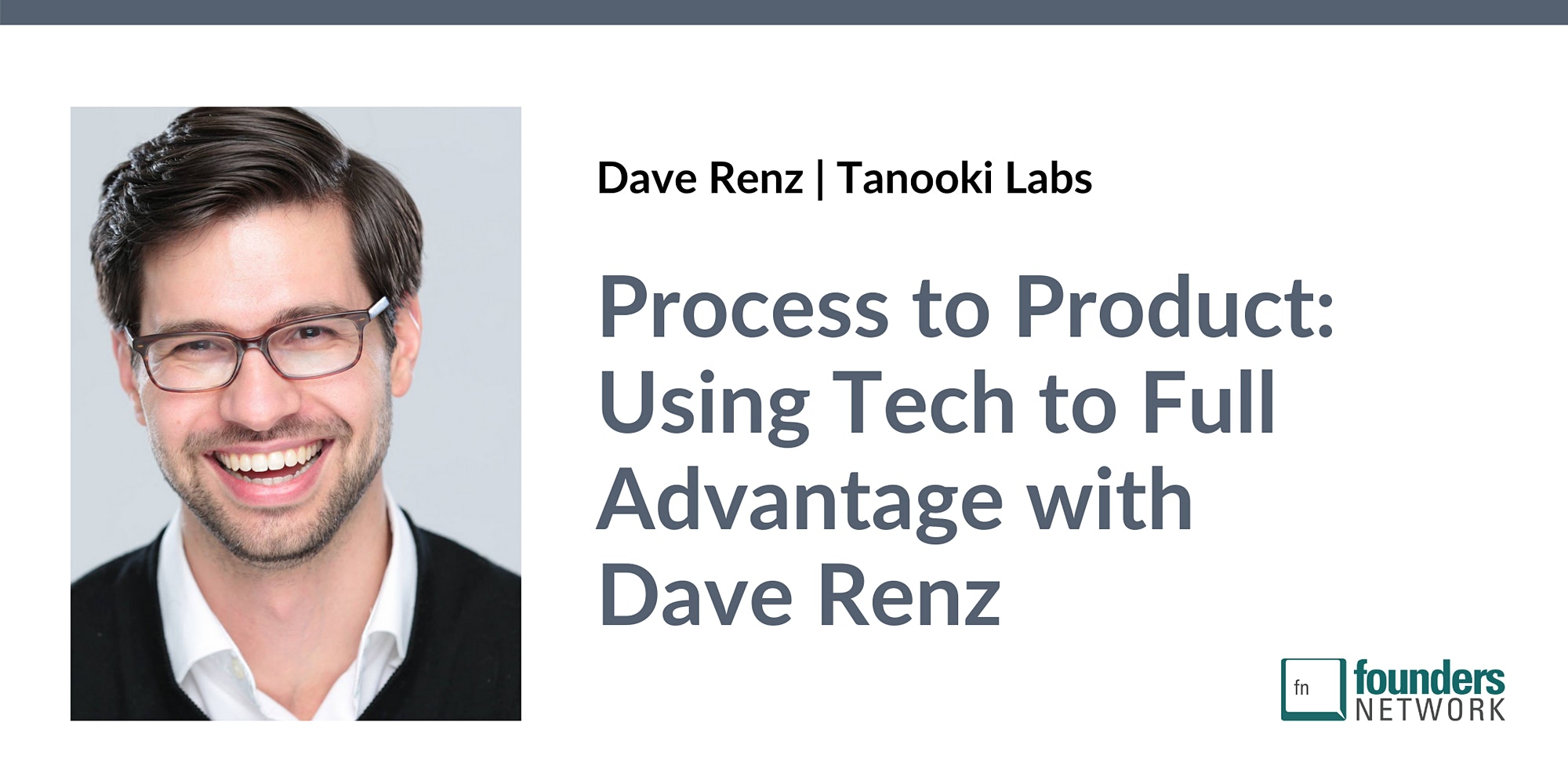

- This event has passed.
April 6, 2021 @ 9:30 am - 10:30 am PDT
FreeProcess to Product: Using Tech to Full Advantage with Dave Renz
Complimentary Ticket:
Are you a full-time tech founder? Be our guest! During COVID, we’re making our events available to tech founders everywhere. Enjoy a complimentary ticket to come learn from fellow tech founders, partners and investors. Already used your complimentary guest pass? Request an invite to see if you qualify for membership.
Topic:
As Co-Founder of Tanooki Labs, Dave Renz has helped over 150 startups launch more than 125 products. His company offers their services as Technology Co-Founders to startups looking for help along the path to product launch. Renz shares his expertise on how technology needs to be incorporated into product decisions at every stage, as well as how critical it is to create a strong foundation for a business through process.
Register at Founders Network for a look at the role of technology at each stage of the process, along with actionable takeaways about:
- The tools and techniques for validating ideas
- What you need to know before starting development
- Options for building your product (a look at hiring vs. no-code vs. outsourcing)
- What to expect from a good development process
- What happens after launch
Presenter:
Dave is an entrepreneur with a diverse background and process driven approach to solving technology and business challenges. He has a degree in Computer Science, worked in enterprise IT, venture capital, corporate innovation and many startups. Today, he is the co-founder of Tanooki Labs, a software design and development firm that focuses on helping founders bring their products and services to market and supporting growth.
About Founders Network:
Founded in 2011, Founders Network offers lifelong peer mentorship to over 600 tech startup founders globally. Our platform, programs and high-touch service facilitate authentic experience sharing, warm introductions and long-term professional relationships. Additional benefits include over $500k in startup discounts and promotion to 2,000 newsletter readers. Members are located in San Francisco, New York City, Los Angeles, Vancouver, Toronto, London and other tech hubs. Each month our Membership Committee admits a new cohort of full-time tech founders who are nominated by an existing member. Learn more at https://foundersnetwork.com
Confidentiality Policy
All information shared within Founders Network is strictly confidential. We are built on a foundation of trust, and the community takes confidentiality seriously. Investors, members, and staff all share experiences and opinions off the record. In this roundtable forum, we continue to model our fnValues of Reciprocity, Humility, Authenticity and Inclusivity.
Testimonials
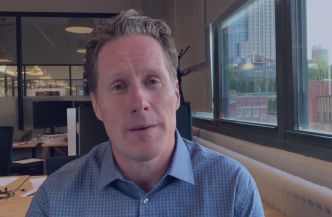
"If you don't have a cohort group in something like Founders Network that you can develop long-term relationships with and discuss the same topics that come up with people that you already know, you're probably missing out on something very important."David Plonsky
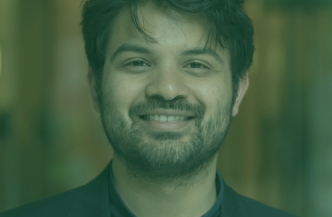
"The number one advantage is the law of compound interest. The longer you stay in a very high-quality network the strong and more authentic relationships you build."Chaitanya Vaidya

"We know each other's business and we know each other's struggles. Having a personal relationship with other founders that is completely confidential and completely authentic gives you a lot of great advice."Doug Lessing
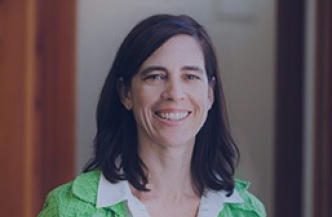
"FN manages my network for me by connecting me with other founders in my specific industry sector. I've been able to explore business development opportunities, partnerships, etc."Becky Splitt
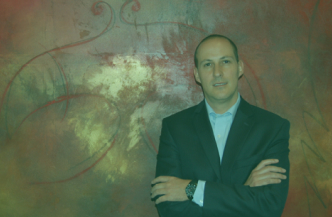
"We just saw the first Mexican unicorn come to life this same week which is a fantastic idea. Being part of the Founders Network makes a lot of sense. We see that the Mexico City chapter is growing substantially."Max Linares
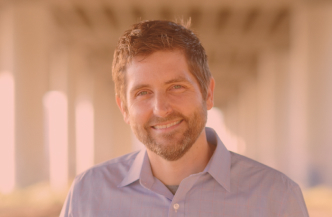
"There's a lot of great stuff going on even now in San Francisco. I've found Founders Network has been a great resource for me and for all of the founders I know during these tough times."Jarie Bolander

"It allowed me to meet people who had done this before that had the experience. I was able to explain an issue very briefly and they were able to give me a very detailed response on how they addressed it."Terence Finn
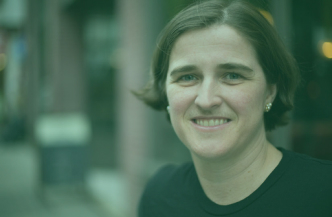
"I've used the platform to discover advice, connections, resources, discounts, on important services, connections to investors, and practice on how to pitch. The kind of conversations you can't get anywhere else on youtube or google searches."Alexandra Greenhill
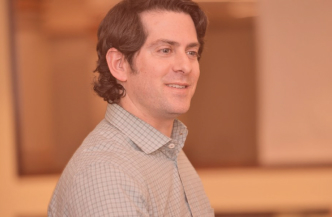
"I see Founders Network as one of those necessary resources in the Chicagoland area."Jason Jacobsohn

"The Black Founders initiative allows me to shape this program where we can inspire, engage, and support Black Founders."Khiry Kemp

